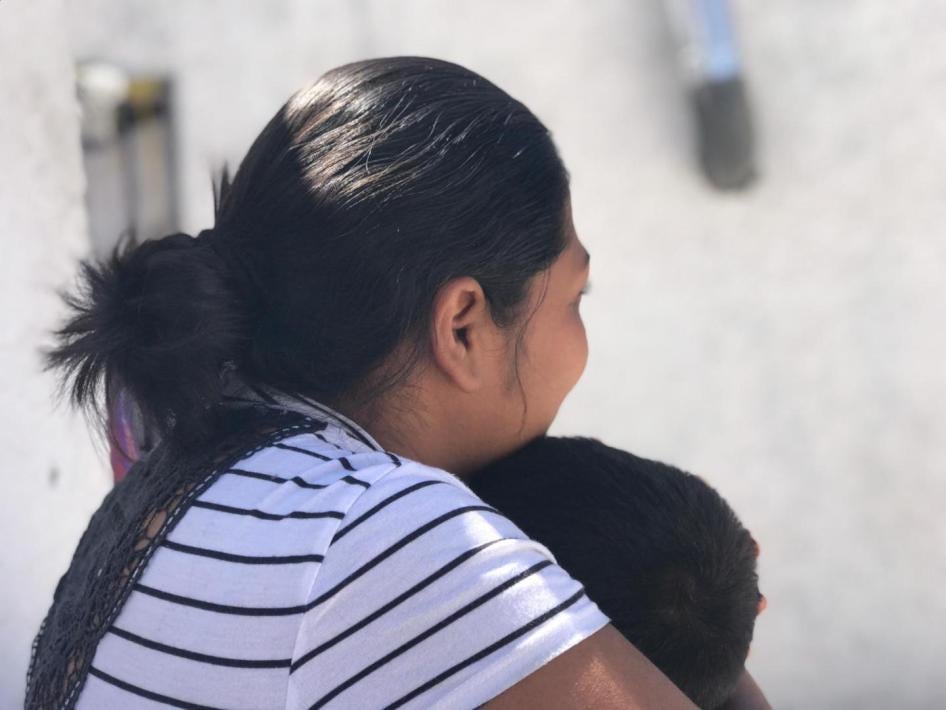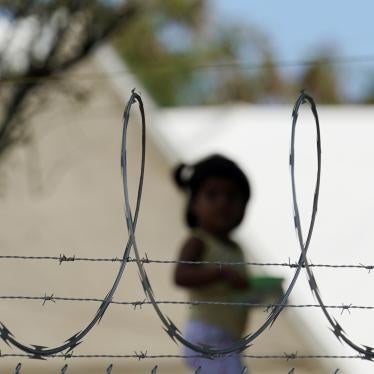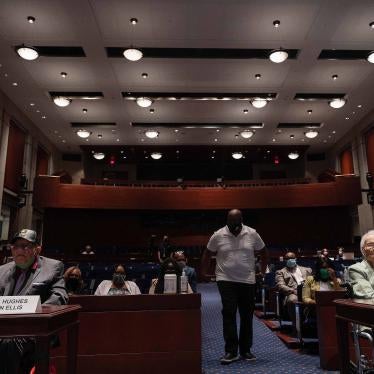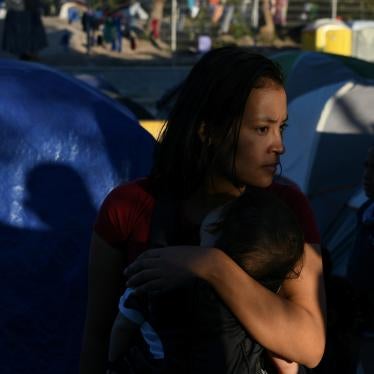On January 25, 2019, US President Donald Trump and Mexican President Andrés Manuel López Obrador began the “Remain in Mexico” or MPP (Migrant Protection Protocols) program. Under it, US border officials return non-Mexican asylum seekers to wait for months or years in dangerous locations in Mexico while their claims are adjudicated in US immigration courts. From January 2019 to January 2021, the Trump administration sent more than 71,000 asylum seekers, including tens of thousands of children and people with disabilities or chronic health conditions, to Mexico under the program.
Since the start of "Remain in Mexico” asylum seekers returned to Mexico have been put at risk of kidnapping, extortion, and rape; have been denied access to basic services like health care and education; and have had their right to seek asylum in the United States systematically violated. The “Remain in Mexico” program has also compounded existing failings in US immigration courts, including a lack of access to counsel, barriers to legal representation, lack of transparency in immigration proceedings, and limited legal protections for asylum seekers. “Remain in Mexico” was a fundamental part of the Trump administration’s efforts to eviscerate the US asylum system, violating US and international refugee law and practice.
President Joe Biden campaigned on the promise that his administration would end former President Trump’s “detrimental asylum policies” in the first 100 days “starting with Trump’s Migrant Protection Protocols.” In February 2021, shortly after Biden took office, he began to allow limited numbers of asylum seekers in the program enter the United States. In June 2021, he officially terminated “Remain in Mexico.” President Biden called the program “dangerous” and “inhumane,” and a Department of Homeland Security memorandum explaining the government’s decision acknowledged its “endemic flaws,” and “unjustifiable human costs.”
However, in December 2021, the Biden administration claimed it was compelled to restart the program due to a federal court order but that it would do so with “improvements.” These include promises to resolve most asylum cases within six months, ensure that asylum seekers have access to counsel, and ensure that “particularly vulnerable individuals” will not be enrolled in the program. Both the United States and Mexico committed to some of these same promises under the first iteration of the program but failed to keep them. President López Obrador, while not bound by US court decisions, nonetheless agreed to restart the program and has defended it.
The gravity of the human rights abuses that have occurred as a result of “Remain in Mexico” has prompted significant investigations, appeals for legislative action, and court challenges by many civil and human rights organizations throughout the United States, Mexico, and the region. These include:
- American Immigration Lawyers Association, “Featured Issue: Migrant Protection Protocols (MPP),” December 3, 2021
- Refugees International, “Remain in Mexico,” December 2021
- Transactional Records Access Clearinghouse at Syracuse University, “Details on MPP (Remain in Mexico) Deportation Proceedings,” October 2021
- Instituto para las Mujeres en la Migración, “Organizaciones de la Sociedad Civil exhortan al gobierno de México a rechazar el restablecimiento del Programa “Quédate en México” o MPP,” August 2021
- Amnesty International, “Pushed Into Harm’s Way: Forced Returns of Unaccompanied Migrant Children to Danger by the USA and Mexico,” June 2021
- Human Rights Watch, “Mexico: Abuses Against Asylum Seekers at US Border,” March 5, 2021
- Human Rights First, “Delivered to Danger: U.S. Government Sending Asylum Seekers and Migrants to Danger” February 2021
- Human Rights Watch, “‘Like I’m Drowning’: Children and Families Sent to Harm by the US ‘Remain in Mexico’ Program,” January 6, 2021
- Instituto para las Mujeres en la Migración “En la Boca del Lobo,” November 2020
- Policy Research Project on Mexico’s Migratory Policy, “Migrant Protection Protocols: Implementation and Consequences for Asylum Seekers in Mexico,” May 2020
- Human Rights First, “Pandemic as Pretext: Trump Administration Exploits COVID-19, Expels Asylum Seekers and Children to Escalating Danger,” May 2020
- Human Rights Watch, “US: ‘Remain in Mexico’ Program Harming Children,” February 12, 2020
- Médecins Sans Frontières, “No way out - The humanitarian crisis for Central American migrants and asylum seekers,” February 11, 2020
- Hope Border Institute, “Border Observatory. 2020 Situation Report: Remain in Mexico,” January 29, 2020
- Hope Border Institute and Stanford Law School, “Violations of Human Rights Occurring in Mexico as a Result of the Remain in Mexico Program,” January 19, 2020
- Human Rights First, “A Year of Horrors: The Trump Administration’s Illegal Returns of Asylum Seekers to Danger in Mexico,” January 2020
- American Immigration Council, “Policies Affecting Asylum Seekers at the Border: The Migrant Protection Protocols, Prompt Asylum Claim Review, Humanitarian Asylum Review Process, Metering, Asylum Transit Ban, and How They Interact,” January 2020
- Office of Senator Jeff Merkley, “Shattered Refuge: A U.S. Senate Investigation into the Trump Administration’s Gutting of Asylum,” November 14, 2019
- Human Rights Watch, “‘We Can’t Help You Here’: US Returns of Asylum Seekers to Mexico,” July 2, 2019
- Human Rights First, “Human Rights Fiasco: The Trump Administration’s Dangerous Asylum Returns Continue,” December 2019
- United States Immigration Policy Center, “Seeking Asylum: Part 2,” October 29, 2019
- Physicians for Human Rights, “’If I went back, I would not survive.’ Asylum Seekers Fleeing Violence in Mexico and Central America,” October 9, 2019
- Transactional Records Access Clearinghouse at Syracuse University, “Access to Attorneys Difficult for Those Required to Remain In Mexico,” July 29, 2019
- Hope Border Institute, “Remain in Mexico Updates,” June 13, 2019
- Women’s Refugee Commission, “Chaos, Confusion, and Danger: The Remain in Mexico Program in El Paso,” May 16, 2019









